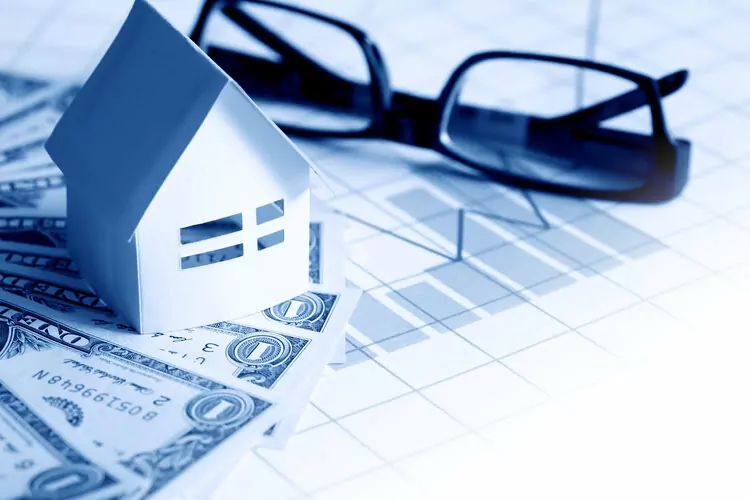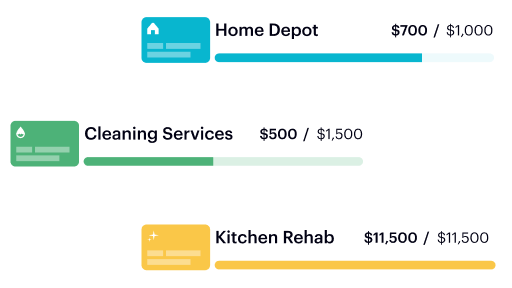As a landlord or owner of rental properties, it’s vital to stay on top of your rental property accounting and bookkeeping. With rent to collect, taxes to pay, maintenance costs and your own expenses, knowing exactly where you stand could make the difference between a profit and a loss.
While managing your rental property finances can be both difficult and time consuming, improving your accounting habits can make things easier and faster – if you know where to start. Learn more about how to simplify your process with these accounting tips for rental property management.
Why is it important for landlords to track rental property finances?
At its heart, your rental property is a business. Whether your strategy is to generate cash flow or capital appreciation, you own your property to make money. Like every business, being a landlord can be complicated – and it’s not always easy to tell whether you’re in the black or the red.
Keeping good records is your first step to understanding your return on investment. When you practice good accounting principles, you have clear records of all the money coming in – primarily from rent but possibly also from other sources – and all of your expenses. Having everything in one place will help you gain a better understanding of your business; you’ll be able to notice trends in your expenses and tell whether you’re generating positive cash flow.
What’s more, good bookkeeping is essential for staying on top of your tax obligations. At tax time, your accounting records will make it easier to claim Schedule E deductions with a well-documented summary of your expenses. Depending on how your rental property business is structured, detailed accounting records may also be necessary to report to your partners and investors. And your records could make it easier to get a mortgage if you want to refinance or buy another property.
How to overcome the challenges of tracking rental property finances?
Knowing what to do and how to do it, of course, are two different things. Landlords frequently face challenges with keeping track of their finances, but that doesn’t mean they can’t be overcome. Here are some ideas to solve for some of the challenges we hear most.
Keep your personal and rental finances separate. Especially if you only have one or two units, or you’re a “landlord by accident,” there’s a good chance you’re using the same checking account and credit cards for your personal finances and rental finances. To keep things from getting lost and lines from being blurred, keep your personal finances personal, and open new accounts for your rental property business. Ideally, you’ll want to have a business checking account for rent collection and operating expenses, a high-yield savings account to hold deposits, and a credit card with cash back or travel rewards for your inevitable trips to Home Depot.
Track transactions as they happen. By the end of the month, chances are at least one receipt will have gone missing and another will have slipped your mind. Instead of making your rental property accounting a monthly chore, get in the habit of logging every transaction right away. That includes rent payments and expenses, as well as documents – think real estate records, mortgage documents, and copies of leases. You’ll thank yourself at tax time.
Automate everything you can. Rental income is meant to be passive income. Make the accounting part of the job easier by removing yourself as much as possible. It’s possible – and smart – to set up your systems to automate everything from rent collection to bill payments, bookkeeping and reporting.
Use tools built for property management. Landlords have unique needs and do themselves a disservice when they use generic tools. While there’s nothing wrong with using a spreadsheet for your rental property accounting, a purpose-built tool can help you make sure you’ve thought of everything and are claiming all the tax deductions you can. And instead of getting cozy with your spreadsheets for a few hours every month, the right software can put those tasks on autopilot and save you a lot of time and stress.
Should I invest in rental property accounting software?
Almost every landlord can benefit from using rental property accounting software for a number of reasons.
Bring all your rental property finances together in one place. As a landlord, you need to be able to see the complete rental property financial picture in one place. While it’s possible to manage your finances using multiple tools, having a single solution built for landlords reduces complexity and gives you a complete view of your finances in a single dashboard.
Maximize your tax deductions. Generic accounting software can’t provide the expertise you need when filing your taxes. When you use rental property accounting software, you can be confident you’re tracking and categorizing all your expenses accurately and getting the entire tax refund you’re entitled to.
Track performance in real time. When you own rental property, tracking performance isn’t always straightforward. Landlords have to deal with things like fluctuating property values and equity, mortgage payments, insurance, rent payments (including the missing ones), vacancies, repairs and maintenance. Rental property accounting software helps you keep track of all these details and see your performance in real time, so you’ll always know where you stand instead of having to wait until you finally have time to reconcile your cash.
Make better decisions with better data. Which of your properties is giving you the best return on investment? Should you refinance your mortgage to get a better rate or improve cash flow? Can you afford to take on another rental property? Should you raise the rent, and if so, how much? When you have the right software, the answers to these questions become much easier to find.
What about bank accounts for managing rental properties?
Choosing the right bank account can also help make it easier to manage your rental property finances. As a landlord, you need to be able to collect rent payments, manage and pay your mortgage, manage and pay your taxes, pay for maintenance expenses, hold and pay interest on security deposits, and keep cash on hand for emergencies – for every property you rent out.
While you can accomplish all these things with regular bank accounts, the best bank accounts for landlords bring all of these needs together into one platform and integrate with your accounting software to give you a clear view of your entire financial picture.
Final thoughts
Whether you’re a casual landlord or managing 25 units, having a strong accounting system can help you save time and money. By making a few simple changes, you can get better insight into how your properties are performing, make sure you’re maximizing your tax deductions, and reduce the amount of time you spend on bookkeeping each month. Taking a few extra steps to invest in purpose-built rental property accounting software and choosing the right bank account can make your job even easier and take your rental business to the next level.
FAQ
If you’re renting your property as a sole proprietor, there’s nothing to stop you from keeping your personal and rental property finances together. But using a separate bank account for your rental property business can help ensure your business transactions don’t get lost in the shuffle and make your life a lot easier in case of a tax audit. If you’re operating as an LLC, it’s wise to keep your rental property banking separate from your other lines of business for similar reasons.
There are no requirements to stop you from doing your accounting in Excel, or even on paper(!), if you want to. But most landlords find it difficult to track their finances across multiple platforms and prefer to keep everything in one place. And if you’re using generic accounting software, you could be missing some details that won’t fall through the cracks with a purpose-built solution.
When you own a rental property, the IRS doesn’t see it as an investment; they see it as a business. That means you’re responsible for paying tax on your rental income, but it also entitles you to deduct your expenses. Keeping detailed records is the best way to ensure nothing gets missed and you don’t pay any more tax than you have to.
From the Author
As an experienced real estate investor, I have faced all the issues you can think of related to managing my rental portfolios finances. Even though I’m a former CPA, with a day job and a family, it can be very difficult to manage. That is why I joined Baselane. To create a one-stop-shop solution that solves all my rental property accounting and financial needs. Join us by signing up and trying it. It’s free.
The all-in-one financial platform to help you save time and increase returns.
Get Started - It's Free





